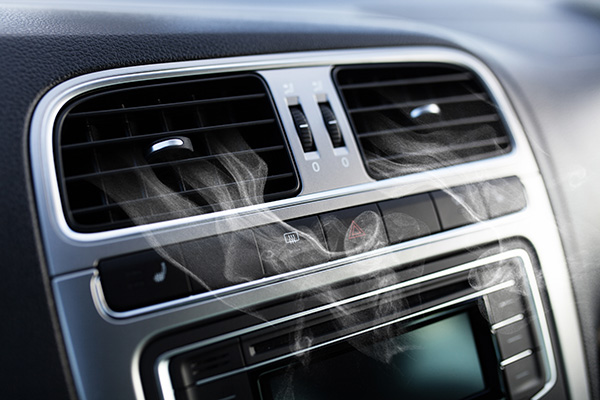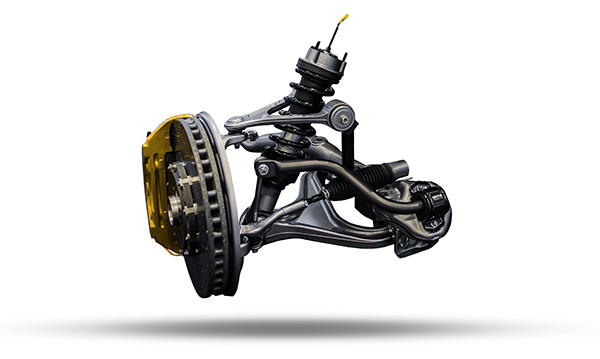Posted on 2/28/2025

A strong gas smell inside or around your car is never something to ignore. While the scent of fuel might be normal at a gas station or right after filling up, it shouldn't linger while you're driving or when the car is parked. A gasoline odor can indicate anything from a minor issue, like a loose gas cap, to a more serious problem, such as a fuel leak or malfunctioning engine components. Identifying the source early can help prevent safety risks, poor fuel efficiency, and costly repairs. Common Causes of a Gas Smell in Your Car A gas odor in your car can stem from several sources. Some are simple fixes, while others require immediate attention to avoid safety hazards. Loose or Damaged Gas Cap One of the easiest things to check is the gas cap. If it’s not tightened properly or if the rubber seal is worn out, gas fumes can escape from the fuel tank. A missing or cracked gas cap not only causes a fuel smell but can also trigger your check ... read more
Posted on 1/31/2025
Gas prices seem to be a constant source of frustration for drivers everywhere. But what if there was a way to make every gallon count, stretching your fuel budget further than you ever thought possible? That’s the essence of hypermiling, a driving technique that’s as much about strategy as it is about efficiency. Whether you’re a daily commuter or someone who loves road trips, learning the basics of hypermiling can help you keep more cash in your pocket. What is Hypermiling Hyper-miling is the practice of adjusting your driving habits and vehicle maintenance to maximize fuel efficiency. It’s not about fancy gadgets or drastic measures—it’s about small, intentional changes that make a big impact over time. From the way you accelerate to how you approach traffic lights, hypermiling focuses on optimizing every aspect of your driving. It’s a technique rooted in mindfulness, requiring you to pay attention to your car, your surroundings, and your ... read more
Posted on 12/20/2024

The start of a new year is the perfect time to turn over a new leaf—not just for yourself but for your car, too. While personal resolutions like eating healthier or hitting the gym are great, why not extend that commitment to your vehicle? A little extra attention to car maintenance can save you money, boost safety, and even extend the life of your ride. Let’s talk about eight resolutions that will keep your vehicle in top shape all year long. 1. Stick to a Regular Maintenance Schedule How often do you find yourself skipping scheduled maintenance because you’re “too busy”? This year, make a vow to follow your car’s service intervals. Whether it’s oil changes, tire rotations, or fluid checks, staying consistent prevents small issues from becoming big headaches. Check your owner’s manual or consult with a trusted se ... read more
Posted on 11/29/2024

Suspension issues might seem minor compared to engine or brake concerns, but they have a significant impact on vehicle safety. Beyond making for a bumpy ride, a faulty suspension can affect handling, tire wear, and even braking ability. If your suspension system isn’t performing at its best, you’re not only risking comfort—you’re risking safety on the road. Let’s examine how suspension problems can jeopardize your vehicle’s performance and safety and how regular maintenance can make all the difference. What is the Role of the Suspension System Your car’s suspension system includes various parts like shocks, struts, springs, and control arms, all working together to absorb road impacts and maintain a stable connection with the road surface. In other words, the suspension system ensures that your tires remain grounded, pr ... read more
Posted on 10/31/2024

Subaru has built a strong reputation for its reliable and innovative engineering, and at the heart of this success is its Symmetrical All-Wheel Drive (AWD) system. You may have heard about how this system enhances Subaru vehicles’ performance and stability, but how does it actually work? What makes it different from other AWD systems out there? What is Subaru’s Symmetrical All-Wheel Drive Subaru’s Symmetrical AWD is an all-wheel-drive system designed to deliver continuous power to all four wheels of the vehicle at the same time. Unlike other AWD systems that activate the rear wheels only when the front ones slip, Subaru's system is always active. This provides enhanced traction, stability, and control regardless of road conditions. The system is called “symmetrical” because the drivetrain is perfectly balanced from front to rear, creating a linear power flow that maximizes efficiency and ensures optimal performance. How Symm ... read more